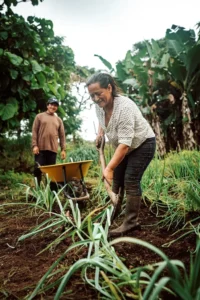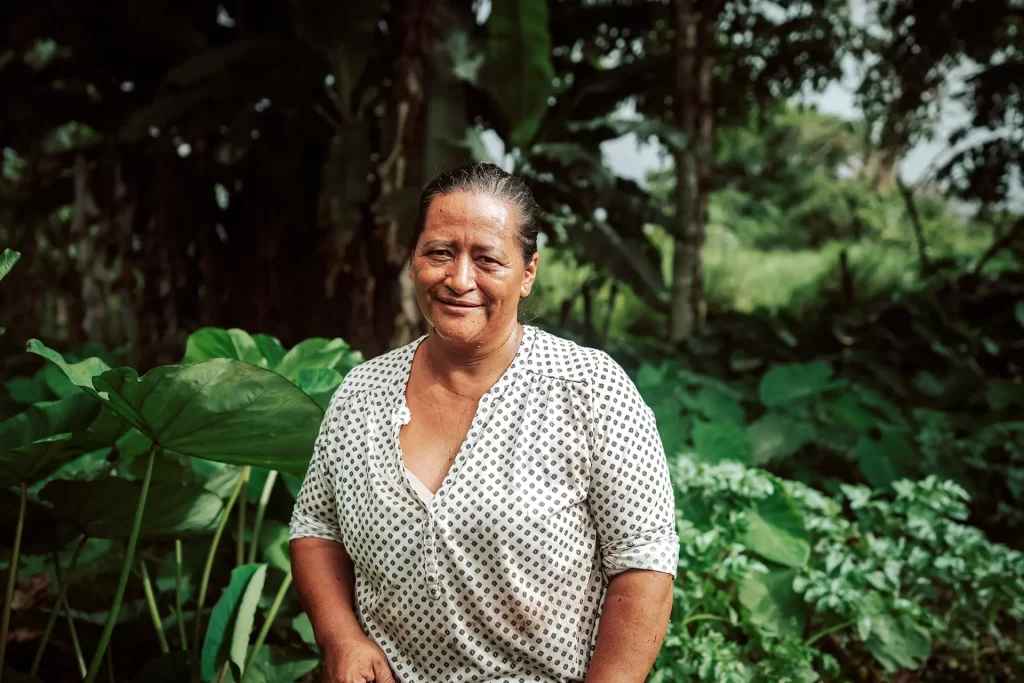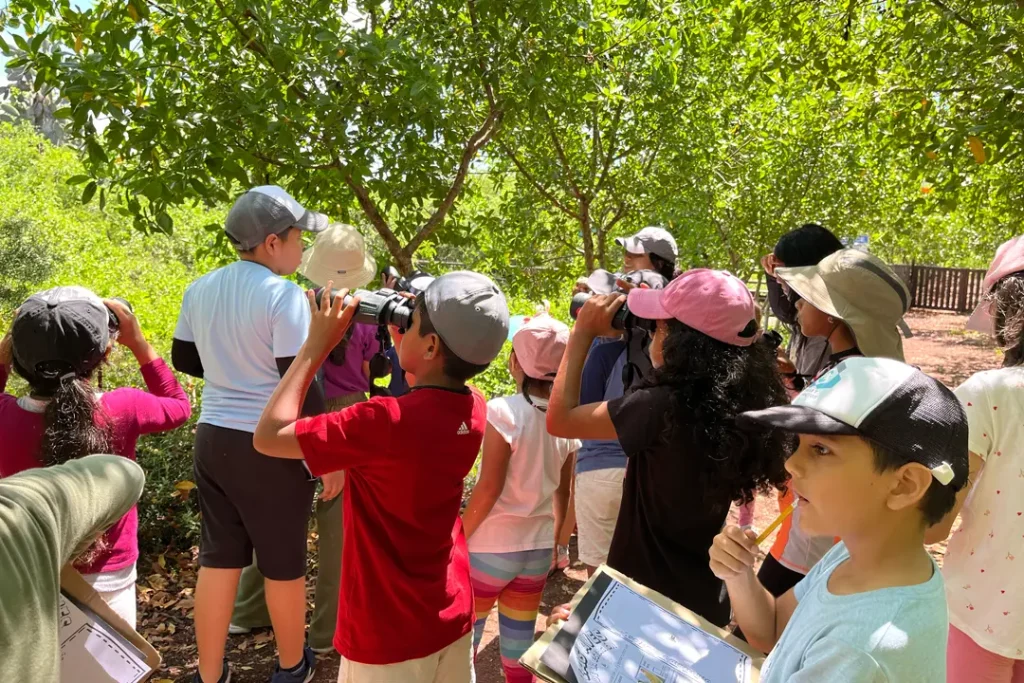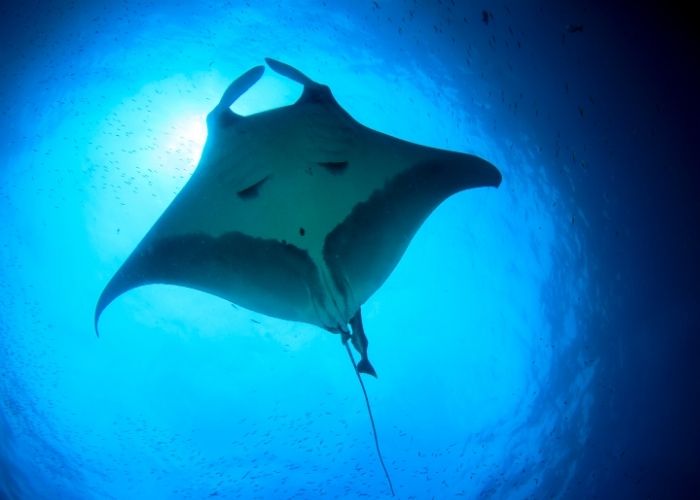COVID-19 taught us many lessons. One of them was the importance to be self-sufficient. Noemi, an entrepreneur and a good example of this, shows us how local farming in Galapagos improves people’s lives and contributes to environmental conservation.
Role of local agriculture during pandemic

©Galápagos Conservancy
Families like Noemi’s have turned to agriculture as a way to strengthen their resilience. Isabela, where Noemi lives, is far from urban amenities, and presents several challenges for livelihood. Noemi’s family has found strength in cultivating the land.
Noemi, who is part of our Conservation Action Grants Program, cultivates carrots, cilantro and tomatoes as well as onions, peppers and peppers. These crops are distributed to local shops, which promotes the consumption of fresh produce that is free of chemicals, safeguarding the health and safety of Isabela residents.
Noemi is convinced that Galapagos’ environment can be preserved by local agriculture. She believes that the importation of products from the mainland could introduce pests and disease that are harmful to the unique flora, fauna and ecosystems in the Galapagos. Noemi stressed that it was important to grow food locally in order to reduce the risk of these pests and disease.
Supporting Local Sustainability
We are proud of our support for initiatives like Noemi’s project which helps to revitalize the local economy in Galapagos and empower rural communities. We also support local agricultural activities to ensure a stable food supply in the province and create employment opportunities.
Noemi’s project is a great example of how collaboration and dedication can have a significant impact on the conservation of an invaluable natural treasure. Galapagos supporters have generously donated to our cause, and we are grateful for their support. This will ensure the protection of the unique ecosystem of Galapagos, as well as a prosperous future both for the islanders and the Galapagos.

©Galápagos Conservancy



